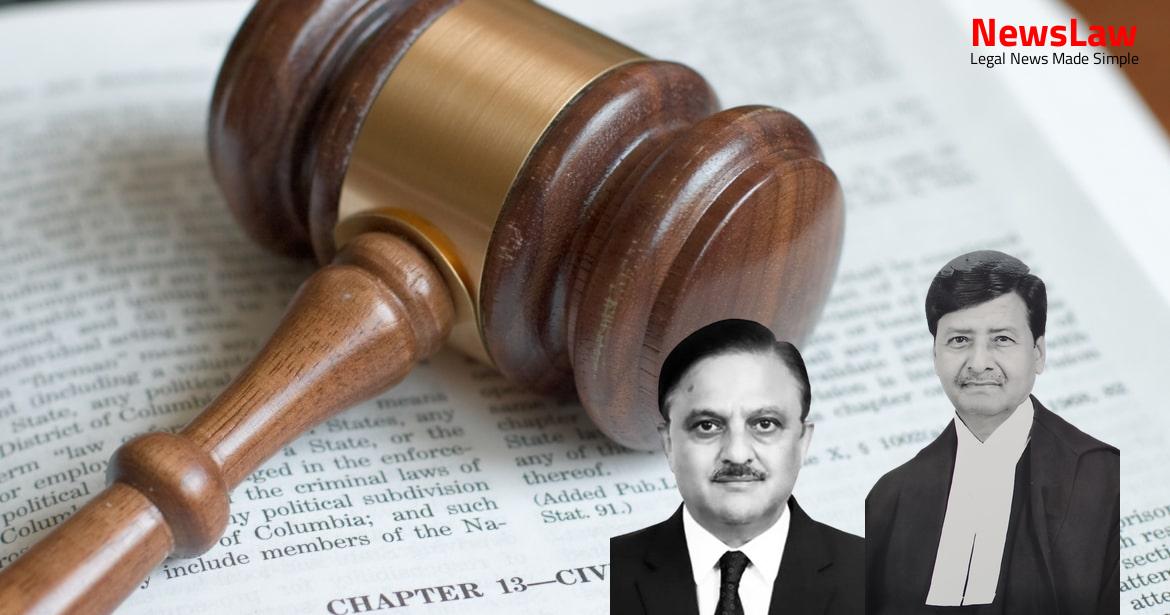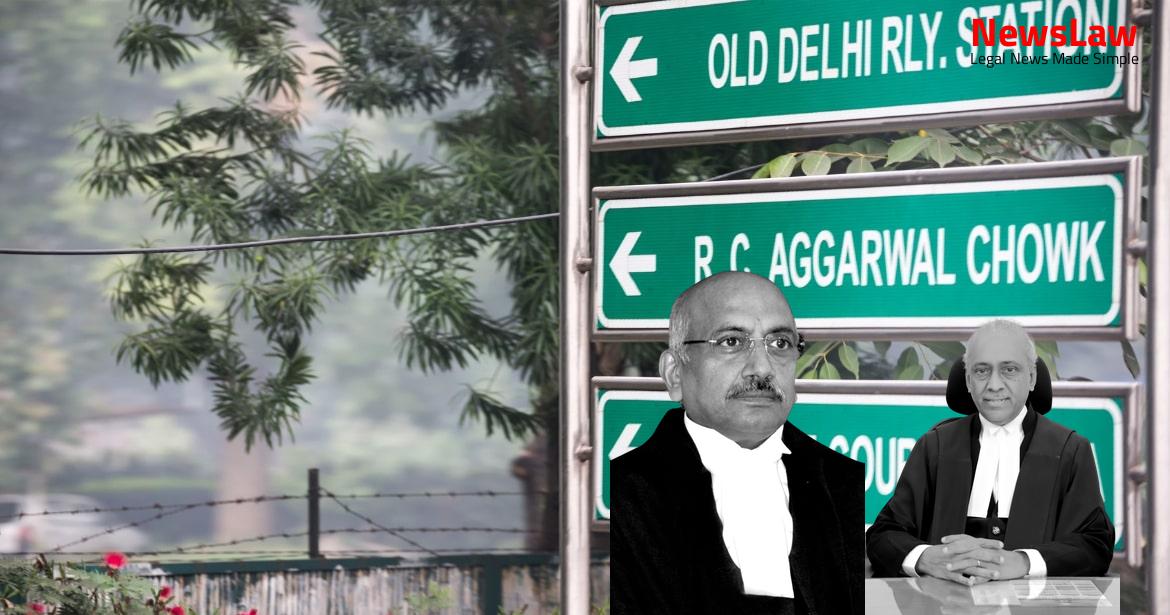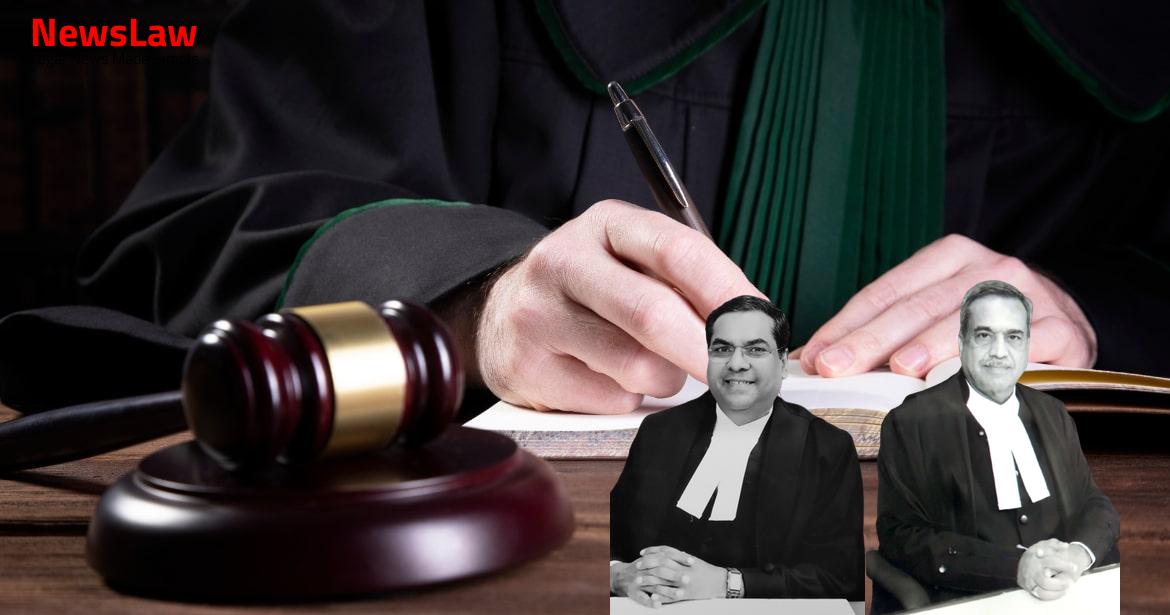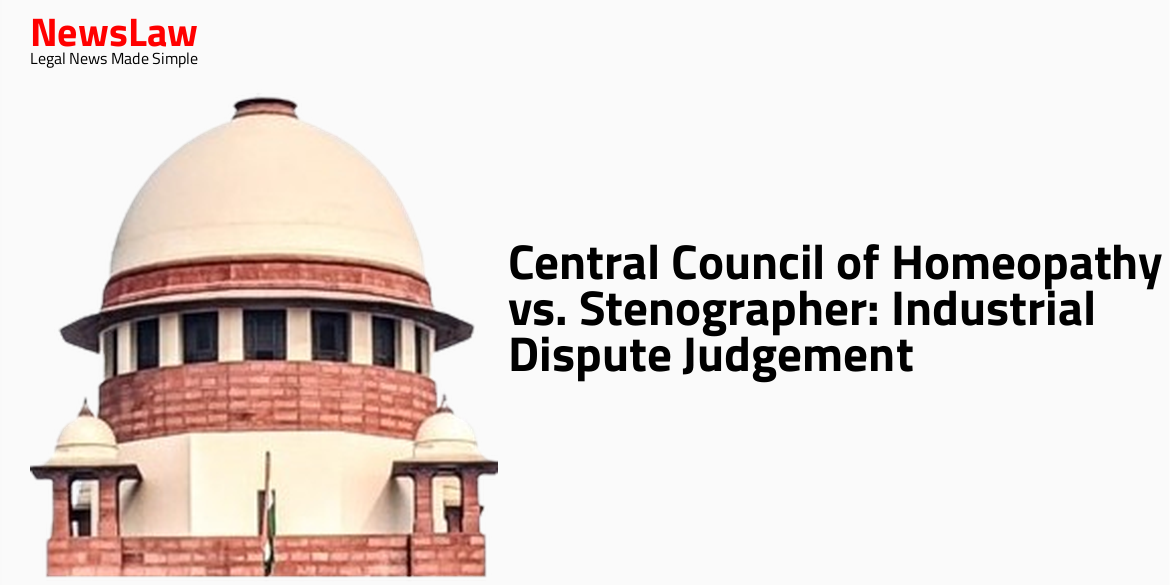The recent legal case revolves around the interpretation of Statute 18 in a University setting, specifically focusing on the nomination process for the Director/HOD position. The Court’s analysis delves into the importance of seniority and past practices in ensuring fair consideration for academic and research roles. The decision highlights the significance of upholding established norms while interpreting rules and regulations, particularly concerning appointments based on seniority and academic qualifications.
Facts
- The appellant relinquished the nomination for the post of HOD after the term of Dr. Moly P. Koshy.
- Dr. Mavoothu D. was nominated as Director/HOD in place of the appellant on 23 November 2017.
- The appellant expressed willingness to be considered for the appointment as Director/HOD after Dr. Mavoothu D.’s term was ending.
- University gives paramount importance to academic and research work, hence nominated the appellant as HOD despite his earlier relinquishment.
- Rotation for the HOD position begins according to seniority, not from the point of earlier nomination.
- The High Court directed the University to revisit rival claims for the position of HOD/Director of the Department.
- The Senior most person is to be considered for appointment on a rotational basis for three years as per Statute 18.
- The appellant, who was senior, had relinquished his claim for rotation in 2017 but could not be denied fair consideration during a fresh round of nomination.
- The Syndicate nominated the appellant as HOD based on recommendations made in November 2020.
- The Single Judge’s order in favor of the appellant was challenged in writ appeal by respondent no. 1.
- The Division Bench overturned the Single Judge’s finding, stating that the appellant had foregone his right of consideration by relinquishing in 2017, and respondent no. 1 should have been considered based on seniority and rotational turn.
Also Read: Admission Deadline Adherence in Medical Courses
Arguments
- Appellant argues that nominations for HOD were made according to seniority on a rotational basis for a period of three years, giving importance to seniority and qualifications.
- Appellant contends that showing unwillingness for HOD nomination once does not relinquish the right in perpetuity, as interpreted by the Division Bench.
- There is no express bar in Statute 18 for eliminating a teacher who once showed unwillingness from consideration forever.
- Constructive interpretation by the Syndicate of Statute 18 gives weightage to seniority and academic work, ensuring fair consideration in subsequent rotations.
- Appellant urges that if two interpretations of Statute 18 are possible, the University’s interpretation should prevail, which has been followed for years.
- Counsel for respondent argues that once the right has been relinquished in 2017, the appellant loses the right for HOD consideration permanently.
- The Division Bench’s observation aligns with the rotation system envisioned by Statute 18.
- Precedents of teachers like Dr. M.K. Jayaraj and Mrs. Mariamma Chacko show that despite initially declining, they were later considered for HOD based on seniority.
- The Syndicate’s nomination of the appellant as HOD was not erroneous, as past practices have considered seniority even for those who initially relinquished their claim.
- The appellant’s decision to relinquish his claim in 2017 has jeopardized the fair consideration rights of respondent no. 1 for the HOD position.
- If the appellant had joined in 2017, respondent no. 1 would have been eligible for nomination as HOD in 2020.
- The University, supported by the appellant’s counsel, upholds Statute 18 in considering seniority for academic and research work.
- The University’s adherence to seniority-based appointments, as per Statute 18, ensures fair consideration in the next rotation.
- The University’s nominations for Director/HOD post are based on seniority and other factors, considering the claim of the appellant.
Also Read: From Nominee to Disqualified: Supreme Court Scrutinizes Age Evidence, Declares Election Invalid
Analysis
- The University considered teachers who initially showed unwillingness but later expressed interest in becoming HOD/Director, based on seniority and eligibility.
- The Syndicate’s decision to nominate Dr. Jagathy Raj as Director was in accordance with Statute 18, which mandates rotation based on seniority for a 3-year term.
- Precedents in the University show that seniority has been given preference when teachers initially declined positions but later sought nomination.
- Dr. Jagathy Raj’s decision to decline earlier was specific to the nomination after Dr. Moly P. Koshy’s term.
- Cases of other professors like Dr. MK Jayaraj and Dr. Mariamma Chacko support the practice of reconsidering willing senior candidates for HOD positions after one rotation.
- The appellant, having now shown willingness, is eligible for consideration based on past practices in the University.
- There is no statutory prohibition against the University’s interpretation of seniority and academic considerations for appointment as HOD/Director at the School of Management Studies.
- The University’s interpretation has been in line with the paramount consideration of academic and research work as well as teacher seniority, a view upheld by the High Court.
- The Court in N. Suresh Nathan case has emphasized the importance of giving precedence to past practices that are not contrary to law and have been followed over a long period.
- Unless the past practice is found to be untenable, courts should generally not interfere with it using the power of judicial review.
- The interference by the Division Bench of the High Court in interpreting Statute 18 of the University is deemed unsustainable in law.
- It is crucial to maintain past practices if they are based on a possible construction of the rules.
- Upsetting past practices that are based on valid rule interpretations would not be appropriate.
Decision
- Pending application(s) stand disposed of.
- The judgment of the Division Bench of the High Court dated 8 April, 2021 is quashed and set aside.
- No order as to costs.
- Consequently, the appeal is allowed.
Case Title: JAGATHY RAJ V.P. Vs. RAJITHA KUMAR. S (2022 INSC 160)
Case Number: C.A. No.-001072-001072 / 2022



